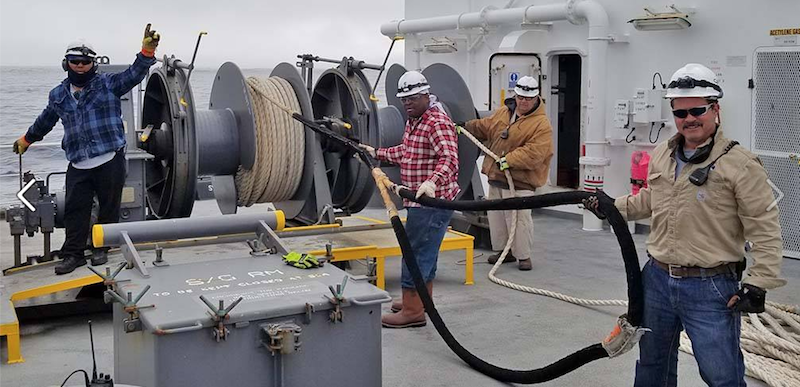We used to send the newbies down the pier looking for bulkhead remover. It was a funny joke that never escalated beyond a collective laugh when the newbie returned saying that he’d looked all over and couldn't find any. Still, some shipboard situations aren’t jokes and can put crew in those tough waters between a career and doing what's right.
If you find yourself in such a situation, it’s worth remembering a statute titled “Protection of seaman against discrimination.” This federal law aims to protect seaman from discrimination or discharge because, in short, they do the right thing. That is, if you accurately report your hours or refuse to perform your duties because of a reasonable belief of injury, or in good faith you report or are about to report to the Coast Guard a maritime safety violation, this federal law could provide you with some protection. Similarly, if you give information to a public official relating to any marine casualty that resulted in injury, death or damage to property that occurred in connection with vessel transportation, this statute would prohibit you from being discharged or discriminated against for doing so.
I think this law is a good idea and it’s been around for a while, but I haven't seen it crop up much in case law. This law’s low profile could mean one of two things. Either there just hasn't been much need for its protections, or the maritime community forgets that this friendly law is riding shotgun. Whatever the situation, talk to a maritime lawyer to understand your rights because the seas can get easily confused.
For example, one court found that merely making inquiries with the Coast Guard, but not reporting a violation or filing a complaint, did not trigger the law. There’s also a troubling instance where an employer tried to recover fees and costs against the employee in an action involving this law. The employer wasn't successful, but that kind of counterclaim is un-American. We have a legal system that promotes access to the courthouse by having each party, in most instances, pay for their own fees and costs.
If you’re in a situation where this law might help you, don't delay in taking action.
Like many things in the law, the passage of time doesn’t usually improve a claimant’s situation and delay can result in a claim being extinguished. If you’re wondering what to do, hunt up a maritime lawyer and run the scenario past them. Most will usually have time to provide you with some initial thoughts on your situation.




